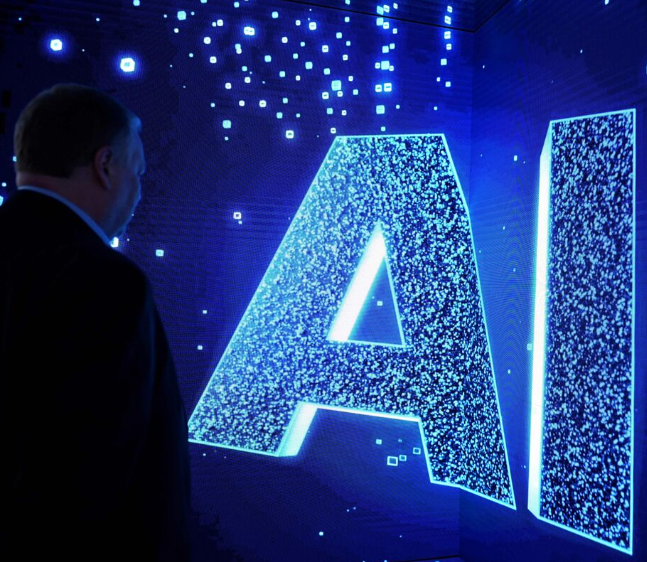The artificial intelligence (AI) market in marketing is poised for significant growth, with projections indicating a rise from $13.51 billion in 2021 to $17.46 billion in 2022, reflecting a compound annual growth rate (CAGR) of 29.25%. According to recent reports from ResearchAndMarkets, this market is expected to reach a staggering $48.91 billion by 2026, continuing at a strong growth rate of 29.38% annually.
Regional Insights
In 2021, the Asia-Pacific (APAC) region led the AI in marketing market, making it the largest market. The AI marketing landscape is diverse, covering multiple regions such as Western Europe, Eastern Europe, North America, South America, the Middle East, and Africa.
Drivers of AI in Marketing
One of the key factors driving growth in AI marketing is the increasing popularity of virtual assistants. These services, which are delivered over dedicated networks or the internet, offer on-demand assistance and are particularly beneficial for small and medium-sized businesses looking to optimize their operations. The COVID-19 pandemic and subsequent lockdowns have led many businesses to adopt virtual assistants as part of their strategy to streamline operations and improve customer interactions.
AI-powered marketing tools gather and analyze vast amounts of consumer data, enabling businesses to make automated decisions. These AI systems can interact with customers based on profiles and behavioral data, delivering personalized messages at the right time, without requiring manual intervention from marketing teams. This helps ensure maximum efficiency and productivity in marketing campaigns.
The Rise of Conversational AI
A new trend in AI marketing is the growth of conversational technologies, including chatbots and virtual agents. According to a report published by ThriveMyWay in April 2022, chatbot-driven e-commerce transactions are expected to reach $112 billion by 2023. These technologies are not only enhancing customer support but also helping businesses reduce costs by up to 30%. As the adoption of virtual assistants increases, so too does the demand for AI-powered marketing solutions.
Technological Advancements
AI in marketing is also benefitting from continuous technological advancements. Software companies are increasingly rolling out innovative solutions to automate and integrate business models. For instance, in October 2020, IBM launched its AI toolkit, IBM Watson, to enhance the advertising ecosystem. This initiative is aimed at helping businesses strengthen their AI capabilities in areas such as language processing, automation, and trust-building.
Additionally, generative AI is emerging as a powerful tool in marketing, enabling the creation of artificial content such as videos, images, text, code, audio, and simulations. Meta’s LLaMA AI research tool, developed to compete with models like GPT-3 and LaMDA, is an example of such technological advancements.
Zoomd Technologies Ltd., an Israeli marketing tech company, further expanded its reach by acquiring Albert Technologies Ltd. in March 2022. This acquisition will allow Zoomd to leverage Albert’s AI capabilities and offer its marketing solutions to a wider range of Fortune 500 clients. This marks a significant shift in the AI marketing landscape, as AI-driven SaaS and self-service models gain traction.
Microsoft’s AI Vision
Microsoft’s CEO Satya Nadella has spoken about the transformative potential of AI, referring to the current era as the “golden age” of artificial intelligence. According to Nadella, AI will fundamentally reshape work practices and business operations. With major investments in AI, Microsoft aims to help businesses and individuals achieve more with less, offering tools like ChatGPT to make AI more accessible and impactful.
AI in Marketing Market Segmentation
The AI in marketing market can be segmented based on several factors:
- By Technology: Machine Learning, Context-Aware Computing, Natural Language Processing, and Computer Vision.
- By Offering: Hardware, Software, and Services.
- By Deployment Type: Cloud-based and On-premises solutions.
- By Application: AI is used in various marketing areas, including Social Media Advertising, Search Advertising, Dynamic Pricing, Virtual Assistants, Content Curation, Sales and Marketing Automation, and Analytics Platforms.
Conclusion
As AI continues to evolve, its impact on marketing will only grow. With advancements in virtual assistants, conversational AI, and machine learning, businesses are increasingly relying on AI solutions to enhance their marketing strategies and improve ROI. By 2026, the AI marketing market is set to reach $48.91 billion, a testament to the rapid adoption of AI technologies across industries.


